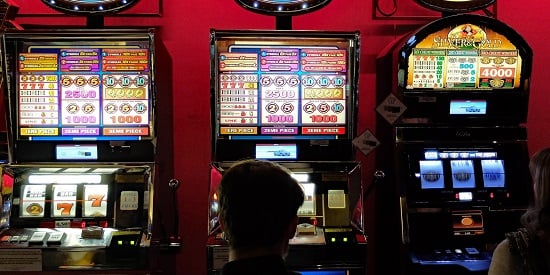Deakin study finds concerning gambling rates among young women
Media release
New research from Deakin University has found young Australian women are significantly more likely to be problem gamblers than their older peers.
The findings from a study led by Associate Professor Samantha Thomas and colleague Simone McCarthy were based on online surveys with more than 500 women from across Victoria and New South Wales.
Their study found almost two thirds of respondents (64 per cent) had engaged in horse betting, poker machines, sports betting or casino gambling over the past 12 months, putting them on par with previous estimated rates of gambling among men.
Associate Professor Thomas, a researcher from the Centre for Population Health Research, said the results were a wake-up call.
"We've become so absorbed in protecting young men that we've taken our eye off the fact that young women are experiencing significant harm," she said.
"Gambling has become more normalised for young women than ever before – it's now a much more normal and regular part of their lives than it was for previous generations."
Associate Professor Thomas said younger women aged 16 to 34 were the study group most associated with high-risk gambling status.
"Our study found younger women reported experiencing the most gambling harm," she said.
"Younger women aged 16 to 34 were 2.6 times more likely to be classified as problem gamblers than middle-aged women aged 35 to 54, and 10.2 times more likely than older women aged 55 and over."
Associate Professor Thomas said younger women might be harmed more quickly by problem gambling because they don't have the savings or steady income buffers of older age groups.
"This is concerning, as some studies have suggested women overall may progress faster than men from the initiation of gambling to the development of problems," she said.
The study found younger women were also more likely to diversify their gambling habits, with 38 per cent of 16 to 34-year-olds engaging in horse betting, poker machines, sports betting and casino gambling.
"Younger women were two times more likely to participate in all four forms of gambling compared to middle-aged women, and six times more likely than older women," Associate Professor Thomas said.
"The study also suggests younger women are diversifying their engagement to gamble on multiple products.
"While pokies were the product gambled on most frequently by women overall, younger women were significantly more likely to bet on sports and gamble at casinos compared to older women.
"There's a major perception issue here – young women see horse and sports betting as less harmful than chance-based gambling, which we believe may be due to their exposure to online promotions and advertisements that have had a normalising impact on their attitudes to these newer forms of gambling."
Ms McCarthy, a PhD candidate within Deakin's School of Health and Social Development, said a more gendered approach to addressing problem gambling would enable public health researchers and policymakers to consider the unique factors associated with women's gambling.
"A lot of the programs that have been developed to help with problem gambling are based on the experiences of men," Ms McCarthy said.
"We've been preoccupied with young men and sports betting, but we need to have a community discussion about the specific ways in which women – particularly young women – are now at risk."
The full findings of the study "Women's gambling behaviour, product preferences, and perceptions of product harm: differences by age and gambling risk status" have been published in the Harm Reduction Journal.

